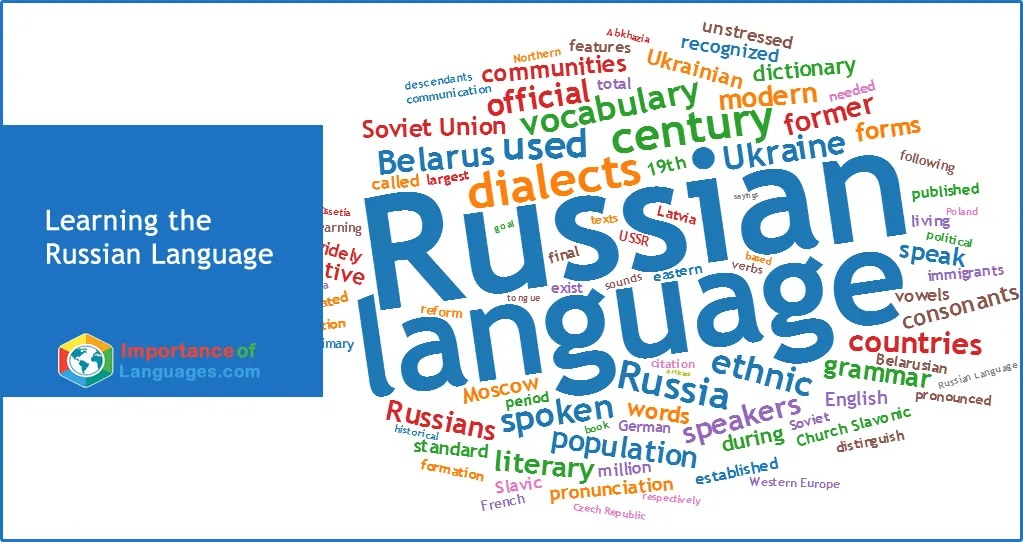World
Russian Language: Too Little, Too Late for Africa

By Kestér Kenn Klomegâh
Russian language study is hitting magnificent roadblocks in Africa. For several years after the Soviet collapse, Moscow has been stepping up efforts to strengthen Russian language study and its culture across Africa. But there have been few tangible results largely due to low motivation towards the language, its usefulness is blurry compared to other foreign languages including French, English language and now Chinese.
In the previous years, there has been an increasing concern about Russia’s extremely low presence in Africa. Russia’s initial interest was to become part of Europe and construct business ties from Lisbon to Vladivostok, its dream of a prestigious Global North. Africa’s potential is obvious to everyone. Due to the changing geopolitical situation, Russia now hopes to normalize cultural relations but has been hampered by multiple challenges.
The Kremlin leadership, the Ministry of Foreign Affairs and the NGOs, including the Russkiy Mir Foundation created to support language study inside Africa, have to seriously prioritize various motivating factors such as broad all-year-round tourism, people-to-people exchanges, cultural linkages, and more educational collaborations. Trade ties, especially the small and medium scale operators in the private sector (as opposed to state corporate commercial deals) and business people’s interactions are highly limited between the two regions.
Critics say Russia, a staunch advocate for multipolar but still, in real terms, stands far from being receptive, interactive and integrative with foreigners. As it appears, Russia’s irreconcilable cultural differences and colour-discriminatory attitudes make the country a segregated society. It is noticeable that potential African learners simply see few opportunities for practising the Russian language and hard to deepen cultural understanding and dispel stereotypes.
Critics further express doubts, and to what degree, the Russian language can bolster bilateral cultural relations with Africa. Russia’s tourism destination spots are still not popular among the middle-class estimated at 350 million which is double the population of Russia.
Most Africans prefer to study foreign languages to ensure smooth participation in interstate activities such as trade and to maintain relationships with people abroad. Foreign countries, for example, Britain, the United States, European countries and now China are their traditional favourites. There are always interactive programmes and cultural activities operated, throughout the year, by foreign missions and NGOs to support government efforts in forging external multifaceted relations.
From different perspectives, Russia has not been a major economic giant in Africa compared to Western and European countries and China. Due to this historical truth, Africans have little interest in studying the Russian language and its culture. The Russian language itself does not sound attractive in terms of its economic opportunity and therefore Africans prefer to study languages that readily offer opportunities. Russia appears quite removed from Africa’s development issues, it is only mentioned in limited areas like weapons and military equipment supplies to French-speaking West Africa. China is making huge contributions in the continent and this has made Africans see the need to understand the language to have better interaction with them and sustain long-term friendship.
More comparably, the research indicates a greater number of Chinese Confucius Institute, an equivalent of Russkiy Mir, in Africa. Nowadays, China is being viewed as a strong strategic partner in Africa given its (China’s) strong footprints in diverse economic sectors. China has more than 20 Confucius Centers and a party school in Africa. Western and European countries, and Asians for example China consistently support civil society, youth programmes and women’s issues, – these are completely vacillating between points of hope and despair on Russia’s radar.
Russian authorities are struggling to find effective ways of marketing the country’s language abroad by establishing language centres, for instance in Morocco, Egypt, Ethiopia, Cameroon, Nigeria and South Africa currently operating in Africa. Central African Republic, Burkina Faso and Mali have declared the Russian language as the second language, compulsorily to be studied in national schools and as an oriented strategy for consolidating cultural cooperation with Russia. It is also envisioned as overcoming social inequality and involvement of the young in sustainable economic development in those African countries.
In June 2001, the Russkiy Mir Foundation was created by a decree of Russian President Vladimir Putin to restore the Russian cultural image and promote the Russian language and its literature abroad, and its activities (operations) are financed under a special state budget allocation approved by the State Duma (lower house of parliament) and the Federation Council.
Chronicling reports on opening Russian language centres, in a couple of years (2021 to 2023), show the Russia House, the latest non-government organization, has now designed a large-scale educational project titled ‘Distant Russian in Africa’ which consists of free intensive Russian language courses and professional development seminars. Its co-organizers are the Institute of Russian Language and Culture (IRLAiK) of Moscow State University and the Russian Center for Science and Culture in Tanzania. Sources, however, indicate that Russian as a foreign language started last summer in Tanzania, Zambia, Uganda, Kenya, Mauritius and Madagascar.
As Russkiy Mir reported, for teachers teaching Russian as a foreign language, Moscow State University usually holds training for educators from East African countries. It was also decided to hold a video conference in the field of tourism. But the point is that Russian authorities have to address the basic issue of running travel and exchange programs for Russian learners, increasing the number of foreign trips (alternatively referred to as study tours) including for Russian language learning purposes in the Russian Federation.
Observers suggest that Russia and Africa should have more and more youth exchanges. Representatives of African countries, as part of the New Generation programme, travel to Russia to participate in short-term programmes designed for young representatives from political, public, scientific and business circles to get acquainted with the people, the city landscape and interesting spots in the Russian Federation.
Generally, it’s time for Africans to create their solutions. Africans have waited for Russia’s pledges and promises, several agreements remain not implemented in the cultural and educational spheres. That’s true, as far as analysing contemporary relations between Russia and African countries. And of course, Africans could also take advantage of the contradictions in the geopolitical processes to pick up useful offers made available from foreign players. Long ago, Africans expressed complete readiness for facilitating practical work with Russia. And it’s time for Russia to Act. This sounds wonderful, right?
At the July plenary session in St. Petersburg, Russian President Vladimir Putin said “We propose the possibility of opening schools in Africa with a series of subjects taught in Russian. Implementing projects such as the study of Russian and introducing Russia’s high educational standards will create the best foundation for equal cooperation.”
According to Putin, in 28 African countries, a project has been launched to create open education centres to train teachers and educators in children’s preschool institutions, as well as primary and secondary schools. “To do this, we are planning to significantly increase the enrollment of African students in Russian pedagogical universities. We invite our African partners to join in this endeavour,” he indicated in his speech in late July 2023.
Nevertheless, we have to keep in mind that Africa has the fastest-growing population in the world. Over 50% of people living in Africa are under the age of 26. At the same time, offering this youth population modern technology in addition to the Russian language would be strategically contributing to the development of their entrepreneurship and leadership qualities, and simultaneously building unique bridges for future collaboration between Africa and Russia.
In conclusion, it is essential to remember to invest in establishing future partnerships. And Russian language could also give an additional dimension, show the roadmap to Africa, and determine the shift in geopolitical relations. Joint declarations, both in Sochi and St. Petersburg, suggested authorities would back away from utter reluctance approach…to take significant new steps forward as well as active engagement in meaningful cooperation in Sub-Saharan Africa.
World
Iranian Supreme Leader Ali Khamenei Dies After Air Strikes

By Dipo Olowookere
Iranian Supreme Leader, Mr Ayatollah Ali Khamenei, has died after coordinated airstrikes carried out by the United States and Israel on Tehran on Saturday morning.
His death was confirmed on Sunday morning by Iranian state media, which also disclosed that his daughter and grandchild were among those killed in the bombardment, which destroyed his compound.
Mr Khamenei was killed during a meeting with top leaders of the Middle East country yesterday, including the Defence Minister Amir Nasirzadeh and Revolutionary Guard commander Mohammad Pakpour, who reportedly died too.
His elimination has sparked mixed reactions, with some Iranians on the streets celebrating his demise, and others condemning the joint air strikes.
The President of the United States, Mr Donald Trump, described the late Iranian leader as “one of the most evil people in history,” expressing satisfaction at the action, which he said was “successful,” as it represented justice for both Iranians and Americans.
Meanwhile, Tehran has vowed to further respond to the attacks after initially firing missiles at six neighbours, including Qatar, Saudi Arabia, Kuwait, UAE, Bahrain, and Jordan.
Flight operations in the region have been disrupted because of the retaliatory action of Iran over the weekend, though most of the missiles were intercepted.
World
AfBD, AU Renew Call for Visa-Free Travel to Boost African Economic Growth

By Adedapo Adesanya
The African Development Bank (AfDB) and the African Union have renewed their push for visa-free travel to accelerate Africa’s economic transformation.
The call was reinforced at a High-Level Symposium on Advancing a Visa-Free Africa for Economic Prosperity, where African policymakers, business leaders, and development institutions examined the need for visa-free travel across the continent.
The consensus described the free movement of people as essential to unlocking Africa’s economic transformation under the African Continental Free Trade Area (AfCFTA).
The symposium was co-convened by AfDB and the African Union Commission on the margins of the 39th African Union Summit of Heads of State and Government in Addis Ababa.
The participants framed mobility as the missing link in Africa’s integration agenda, arguing that while tariffs are falling under AfCFTA, restrictive visa regimes continue to limit trade in services, investment flows, tourism, and labour mobility.
On his part, Mr Alex Mubiru, Director General for Eastern Africa at the African Development Bank Group, said that visa-free travel, interoperable digital systems, and integrated markets are practical enablers of enterprise, innovation, and regional value chains to translate policy ambitions into economic activity.
“The evidence is clear. The economics support openness. The human story demands it,” he told participants, urging countries to move from incremental reforms to “transformative change.”
Ms Amma A. Twum-Amoah, Commissioner for Health, Humanitarian Affairs and Social Development at the African Union Commission, called for faster implementation of existing continental frameworks.
She described visa openness as a strategic lever for deepening regional markets and enhancing collective responses to economic and humanitarian crises.
Former AU Commission Chairperson, Ms Nkosazana Dlamini-Zuma, reiterated that free movement is central to the African Union’s long-term development blueprint, Agenda 2063.
“If we accept that we are Africans, then we must be able to move freely across our continent,” she said, urging member states to operationalise initiatives such as the African Passport and the Free Movement of Persons Protocol.
Ghana’s Trade and Industry Minister, Mrs Elizabeth Ofosu-Adjare, shared her country’s experience as an early adopter of open visa policies for African travellers, citing increased business travel, tourism, and investor interest as early dividends of greater openness.
The symposium also reviewed findings from the latest Africa Visa Openness Index, which shows that more than half of intra-African travel still requires visas before departure – seen by participants as a significant drag on intra-continental commerce.
Mr Mesfin Bekele, Chief Executive Officer of Ethiopian Airlines, called for full implementation of the Single African Air Transport Market (SAATM), saying aviation connectivity and visa liberalisation must advance together to enable seamless travel.
Regional representatives, including Mr Elias Magosi, Executive Secretary of the Southern Africa Development Community, emphasised the importance of building trust through border management and digital information-sharing systems.
Ms Gabby Otchere Darko, Executive Chairman of the Africa Prosperity Network, urged governments to support the “Make Africa Borderless Now” campaign, while tourism campaigner Ras Mubarak called for more ratifications of the AU Free Movement of Persons protocol.
Participants concluded that achieving a visa-free Africa will require aligning migration policies, digital identity systems, and border infrastructure, alongside sustained political commitment.
World
Nigeria Exploring Economic Potential in South America, Particularly Brazil

By Kestér Kenn Klomegâh
In this interview, Uche Uzoigwe, Secretary-General of NIDOA-Brazil, discusses the economic potential in South America, particularly Brazil, and investment incentives for Brazilian corporate partners for the Federal Republic of Nigeria (FRN). Follow the discussion here:
How would you assess the economic potential in the South American region, particularly Brazil, for the Federal Republic of Nigeria? What investment incentives does Nigeria have for potential corporate partners from Brazil?
As the Secretary of NIDOA Brazil, my response to the questions regarding the economic potentials in South America, particularly Brazil, and investment incentives for Brazilian corporate partners would be as follows:
Brazil, as the largest economy in South America, presents significant opportunities for the Federal Republic of Nigeria. The country’s diverse economy is characterised by key sectors such as agriculture, mining, energy, and technology. Here are some factors to consider:
- Natural Resources: Brazil is rich in natural resources like iron ore, soybeans, and biofuels, which can be beneficial to Nigeria in terms of trade and resource exchange.
- Growing Agricultural Sector: With a well-established agricultural sector, Brazil offers potential collaboration in agri-tech and food security initiatives, which align with Nigeria’s goals for agricultural development.
- Market Size: Brazil boasts a large consumer market with a growing middle class. This represents opportunities for Nigerian businesses looking to export goods and services to new markets.
- Investment in Infrastructure: Brazil has made significant investments in infrastructure, which could create opportunities for Nigerian firms in construction, engineering, and technology sectors.
- Cultural and Economic Ties: There are historical and cultural ties between Nigeria and Brazil, especially considering the African diaspora in Brazil. This can facilitate easier business partnerships and collaborations.
In terms of investment incentives for potential corporate partners from Brazil, Nigeria offers several attractive incentives for Brazilian corporate partners, including:
- Tax Incentives: Various tax holidays and concessions are available under the Nigerian government’s investment promotion laws, particularly in key sectors like agriculture, manufacturing, and technology.
- Repatriation of Profits: Brazil-based companies investing in Nigeria can repatriate profits without restrictions, thus enhancing their financial viability.
- Access to the African Market: Investment in Nigeria allows Brazilian companies to access the broader African market, benefiting from Nigeria’s membership in regional trade agreements such as ECOWAS.
- Free Trade Zones: Nigeria has established free trade zones that offer companies the chance to operate with reduced tariffs and fewer regulatory burdens.
- Support for Innovation: The Nigerian government encourages innovation and technology transfer, making it attractive for Brazilian firms in the tech sector to collaborate, particularly in fintech and agriculture technology.
- Collaborative Ventures: Opportunities exist for joint ventures with local firms, leveraging local knowledge and networks to navigate the business landscape effectively.
In conclusion, fostering a collaborative relationship between Nigeria and Brazil can unlock numerous economic opportunities, leading to mutual growth and development in various sectors. We welcome potential Brazilian investors to explore these opportunities and contribute to our shared economic goals.
In terms of this economic cooperation and trade, what would you say are the current practical achievements, with supporting strategies and systemic engagement from NIDOA?
As the Secretary of NIDOA Brazil, I would highlight the current practical achievements in economic cooperation and trade between Nigeria and Brazil, alongside the supporting strategies and systemic engagement from NIDOA.
Here are some key points:
Current Practical Achievements
- Increased Bilateral Trade: There has been a notable increase in bilateral trade volume between Nigeria and Brazil, particularly in sectors such as agriculture, textiles, and technology. Recent trade agreements and discussions have facilitated smoother trade relations.
- Joint Ventures and Partnerships: Successful joint ventures have been established between Brazilian and Nigerian companies, particularly in agriculture (e.g., collaboration in soybean production and agricultural technology) and energy (renewables, oil, and gas), demonstrating commitment to mutual development.
- Investment in Infrastructure Development: Brazilian construction firms have been involved in key infrastructure projects in Nigeria, contributing to building roads, bridges, and facilities that enhance connectivity and economic activity.
- Cultural and Educational Exchange Programs: Programs facilitating educational exchange and cultural cooperation have led to strengthened ties. Brazilian universities have partnered with Nigerian institutions to promote knowledge transfer in various fields, including science, technology, and arts.
Supporting Strategies
- Strategic Trade Dialogue: NIDOA has initiated regular dialogues between trade ministries of both nations to discuss trade barriers, potential markets, and cooperative opportunities, ensuring both countries are aligned in their economic goals.
- Investment Promotion Initiatives: Targeted initiatives have been established to promote Brazil as an investment destination for Nigerian businesses and vice versa. This includes showcasing success stories at international trade fairs and business forums.
- Capacity Building and Technical Assistance: NIDOA has offered capacity-building programs focused on enhancing Nigeria’s capabilities in agriculture and technology, leveraging Brazil’s expertise and sustainable practices.
- Policy Advocacy: Continuous advocacy for favourable trade policies has been a key focus for NIDOA, working to reduce tariffs and promote economic reforms that facilitate investment and trade flows.
Systemic Engagement
- Public-Private Partnerships (PPPs): Engaging the private sector through PPPs has been essential in mobilising resources for development projects. NIDOA has actively facilitated partnerships that leverage both public and private investments.
- Trade Missions and Business Delegations: Organised trade missions to Brazil for Nigerian businesses and vice versa, allowing for direct engagement with potential partners, fostering trust and opening new channels for trade.
- Monitoring and Evaluation: NIDOA implements a rigorous monitoring and evaluation framework to assess the impact of various initiatives and make necessary adjustments to strategies, ensuring effectiveness in achieving economic cooperation goals.
Through these practical achievements, supporting strategies, and systemic engagement, NIDOA continues to play a pivotal role in enhancing economic cooperation and trade between Nigeria and Brazil. By fostering collaboration and leveraging shared resources, we aim to create a sustainable and mutually beneficial economic environment that promotes growth for both nations.
Do you think the changing geopolitical situation poses a number of challenges to connecting businesses in the region with Nigeria, and how do you overcome them in the activities of NIDOA?
The changing geopolitical situation indeed poses several challenges for connecting businesses in the South American region, particularly Brazil, with Nigeria. These challenges include trade tensions, shifting alliances, currency fluctuations, and varying regulatory environments. Below, I will outline some of the specific challenges and how NIDOA works to overcome them:
Current Challenges
- No Direct Flights: This challenge is obviously explicit. Once direct flights between Brazil and Nigeria become active, and hopefully this year, a much better understanding and engagement will follow suit.
- Trade Restrictions and Tariffs: Increasing trade protectionism in various regions can lead to higher tariffs and trade barriers that hinder the movement of goods between Brazil and Nigeria.
- Currency Volatility: Fluctuations in the value of currencies can complicate trade agreements, pricing strategies, and overall financial planning for businesses operating in both Brazil and Nigeria.
- Different regulatory frameworks and compliance requirements in both countries can create challenges for businesses aiming to navigate these systems efficiently.
- Supply Chain Disruptions: Changes in global supply chains due to geopolitical factors may disrupt established networks, impacting businesses relying on imports and exports between the two nations.
Overcoming Challenges through NIDOA.
NIDOA actively engages in discussions with both the Brazilian and Nigerian governments to advocate for favourable trade policies and agreements that reduce tariffs and improve trade conditions. This year in October, NIDOA BRAZIL holds its TRADE FAIR in São Paulo, Brazil.
What are the popular sentiments among the Nigerians in the South American diaspora? As the Secretary-General of the NIDOA, what are your suggestions relating to assimilation and integration, and of course, future perspectives for the Nigerian diaspora?
As the Secretary-General of NIDOA, I recognise the importance of understanding the sentiments among Nigerians in the South American diaspora, particularly in Brazil.
Many Nigerians in the diaspora take pride in their cultural roots, celebrating their heritage through festivals, music, dance, and culinary traditions. This cultural expression fosters a sense of community and belonging.
While many individuals embrace their new environments, they often face challenges related to cultural differences, language barriers, and social integration, which can lead to feelings of isolation.
Many express optimism about opportunities in education, business, and cultural exchange, viewing their presence in South America as a chance to expand their horizons and contribute to economic activities both locally and back in Nigeria.
Sentiments regarding acceptance vary; while some Nigerians experience warmth and hospitality, others encounter prejudice or discrimination, which can impact their overall experience in the host country. NIDOA BRAZIL has encouraged the formation of community organisations that promote networking, cultural exchange, and social events to foster a sense of belonging and support among Nigerians in the diaspora. There are currently two forums with over a thousand Nigerian members.
Cultural Education and Awareness Programs: NIDOA BRAZIL organises cultural education programs that showcase Nigerian heritage to local communities, promoting mutual understanding and appreciation that can facilitate smoother integration.
Language and Skills Training: NIDOA BRAZIL provides language courses and skills training programs to help Nigerians, especially students in tertiary institutions, adapt to their new environment, enhancing communication and employability within the host country.
Engaging in Entrepreneurship: NIDOA BRAZIL supports the entrepreneurial spirit among Nigerians in the diaspora by facilitating access to resources, mentorship, and networks that can help them start businesses and create economic opportunities.
Through its AMBASSADOR’S CUP COMPETITION, NIDOA Brazil has engaged students of tertiary institutions in Brazil to promote business projects and initiatives that can be implemented in Nigeria.
NIDOA BRAZIL also pushes for increased tourism to Brazil since Brazil is set to become a global tourism leader in 2026, with a projected 10 million international visitors, driven by a post-pandemic rebound, enhanced air connectivity, and targeted marketing strategies.
Brazil’s tourism sector is poised for a remarkable milestone in 2026, as the country expects to welcome over 10 million international visitors—surpassing the previous record of 9.3 million in 2025. This expected surge represents an ambitious leap, nearly doubling the country’s foreign-arrival numbers within just four years, a feat driven by a combination of pent-up global demand, strategic air connectivity improvements, and a highly targeted marketing campaign.
-

 Feature/OPED6 years ago
Feature/OPED6 years agoDavos was Different this year
-
Travel/Tourism10 years ago
Lagos Seals Western Lodge Hotel In Ikorodu
-

 Showbiz3 years ago
Showbiz3 years agoEstranged Lover Releases Videos of Empress Njamah Bathing
-

 Banking8 years ago
Banking8 years agoSort Codes of GTBank Branches in Nigeria
-

 Economy3 years ago
Economy3 years agoSubsidy Removal: CNG at N130 Per Litre Cheaper Than Petrol—IPMAN
-

 Banking3 years ago
Banking3 years agoSort Codes of UBA Branches in Nigeria
-

 Banking3 years ago
Banking3 years agoFirst Bank Announces Planned Downtime
-

 Sports3 years ago
Sports3 years agoHighest Paid Nigerian Footballer – How Much Do Nigerian Footballers Earn









